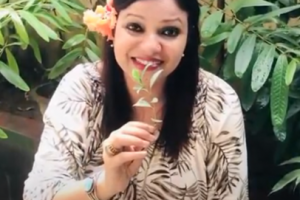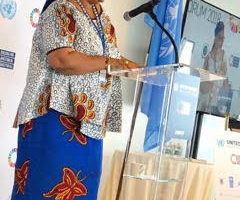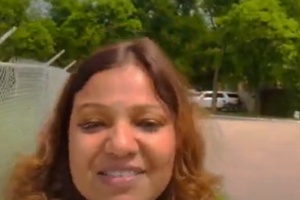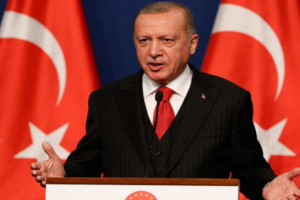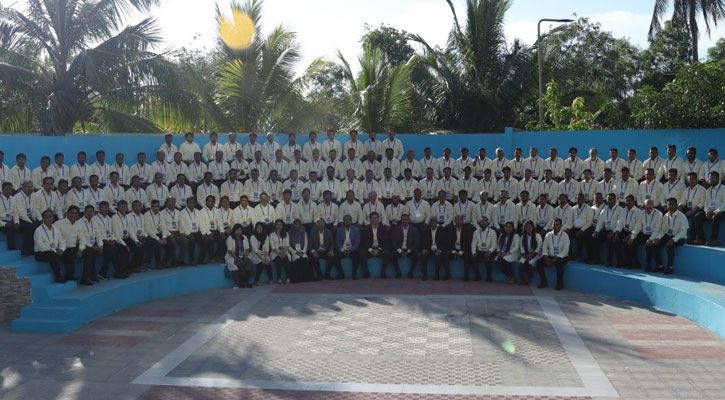Through the thin wall separating her from her neighbours, Dr Anzhela Kirilova began to hear the rasping cough associated with COVID-19 sometime in May. That was hardly a surprise, as a few weeks earlier her neighbours had heard the same cough coming from her room.
Kirilova, who works in a COVID-19 ward at a hospital, said she had tried to warn the single man and the young family with whom she shares the four-room apartment, suggesting they wear masks in the kitchen.
“They said, ‘We don’t care, and we’ll do what we want,’” she said with a shrug.
For residents of Russia’s communal apartments — a relic of the Soviet Union but still home to hundreds of thousands of people, most of them in St Petersburg — self-isolation to fend off the coronavirus is hardly an option.
From a half-dozen to more than 20 people live in separate rooms within a single apartment, typically one to a family, while sharing a kitchen and bathroom in one large, usually unhappy, household. In St Petersburg, about 500,000 people live in communal apartments, constituting 10% of the city’s population.
Life in communal apartments has always bordered on intolerable. The rules for close-quarters living among people who may despise one another are delicate. Feuds are common.
“Because of a lack of privacy, people become very suspicious,” said Ilya Utekhin, a professor of anthropology at the European University of St Petersburg and author of “Essays on Communal Life.”
Even in the best of times, which, to be honest, there have not been many for the communal apartment residents of this city, “they believe their neighbours want to inflict all kinds of damage,” he said. “They become afraid. They are sure that in their absence, their neighbours are looking at or touching their things.”
Some families keep their own toilet seat, usually hanging on a nail in the bathroom, which they swap out for the common seat. In another arrangement, several families that get along share a seat among themselves, but not with others. This is called a “toilet seat circle.”
The tensions have been compounded by the threat of the new coronavirus. Russia, with more than 500,000 reported cases, has the third-highest number of infected people after the United States and Brazil.
Health authorities have not released statistics on infections in communal apartments in St Petersburg. But the slow burn of infection has served to heighten tensions between residents, shedding light on the lingering poverty and shabby living arrangements.
The idea of communal apartments sprang up right after the Bolshevik Revolution of 1917. In a process they called “creating density,” the communists divided up the palaces and apartments of the rich, the noblemen and various lords and vassals of the czarist court and moved in thousands of poor families.
The resulting communal apartments, of which about 69,000 remain today, accounting for as much as 40% of the residential real estate in central St Petersburg, became a blend of architectural opulence and everyday penury.
Masks hang at the entrance of the Bashnya communal apartment in St Peterburg, Russia, May 31, 2020.Masks hang at the entrance of the Bashnya communal apartment in St Peterburg, Russia, May 31, 2020.Millions of people in the Soviet Union lived in communal apartments. Most are now gone outside of St Petersburg, where they remain because of the vast number of historic buildings that had been converted to communal apartments. On floors once walked by Russian aristocrats, residents argue over noise, unwashed dishes, demented or alcoholic neighbors, guests and germs.
Out on the streets, St Petersburg remains, as ever, a magnificent tableau of palaces and beauty, now bathed in the eerie, round-the-clock light known as the White Nights.
But inside the communal apartments is a world of dank spaces with dangling wires, sepia-coloured sinks, peeling wallpaper and strange smells, but sporting high ceilings and original 19th-century moldings, brass fixtures and parquet floors.
“It’s an amazing city,” said Maia Parkhomenko, a real estate agent who buys communal apartments for investors and resettles their residents in smaller, private apartments. “When I wasn’t working in real estate, it seemed monumental, beautiful. Then I went behind the facades and was horrified. People wait in lines for the bathroom; there are fleas and cockroaches.”
So far, there are no signs of pandemic-related unrest in Russia. But frustration is rising among residents of communal apartments.
In the complex social calculus of their world, inquiring about coughs or sneezes — no matter how vital during the pandemic — is still seen as violating a cardinal rule by intruding on what shreds of privacy remain.
When the coughing started in the next room, for example, Kirilova did not ask if her cohabitants had the virus, she said, lest she create what is known as a “scandal” by interfering in others’ personal affairs.
“It’s not comfortable for me to barge in on their business,” she said.
And Ekaterina Melnika, who lives in a room near Kirilova, said in a separate interview in the apartment kitchen that she could not recall the doctor warning neighbours about her work in a COVID-19 ward but added that maybe “I didn’t understand.” She said she was upset.
But, in a sign of how tightly residents guard their privacy, Melnika said she had not felt it was her place to ask why the couple next door, with whom she shares a kitchen and bathroom, spent two weeks or so in bed.
“Sometimes a person is just at home, but I don’t know why,” she said, adding that her husband coughed not because of the virus but because he is a heavy smoker.
In one of the city’s more famous warrens of communal apartments, the Emir of Bukhara building, once a palatial residence built for a Central Asian vassal of the czar, Sonya Minayeva, an artist, has continued living much the same as she did before the pandemic.
“I am not taking any precautions, on principle,” said Minayeva, 32.
She refuses to wear a mask in the corridor or kitchen, she said, in the belief that people should enjoy life and not overly focus on the risk. The Russian authorities generally encourage mask wearing but have offered no specific guidance for communal apartments.
But one older neighbour has taken to eyeing her suspiciously, she said. The neighbour has not yet confronted her directly, lest a scandal break out and disturb the peace.
“You feel the tension,” Minayeva said in an interview in her room, where the long dead emir’s choice of plaster molding, grape bunches and cherubs, still adorned the 12-foot-high ceilings.
The communal shower reeked of mold, even through a high-quality N-95 mask.
“There’s a silent paranoia,” she said.
Less dire inconveniences emerged as well during the lockdown, as residents found themselves stuck at home together.
“Nobody goes to work,” she said. “It’s impossible to know when you can take a shower. It’s become completely unpredictable.”
Russian cities began reopening after lockdowns this past week, although reported new infections have plateaued at about 9,000 a day. The city has set up 1,580 cots at convention centres for residents of communal apartments if needed, but few seemed to be aware of this option.
One day recently, under a bare incandescent bulb dangling from a wire in the kitchen, Aziz Eganudiyez, a migrant worker from Uzbekistan, busied himself frying an omelet.
He shares the apartment with a young family and other migrant workers. While the children’s mother fretted about risk, Eganudiyez, who was not wearing a mask, brushed off her concerns.
“I don’t believe in the virus,” he said. “Nobody I know has it.”







